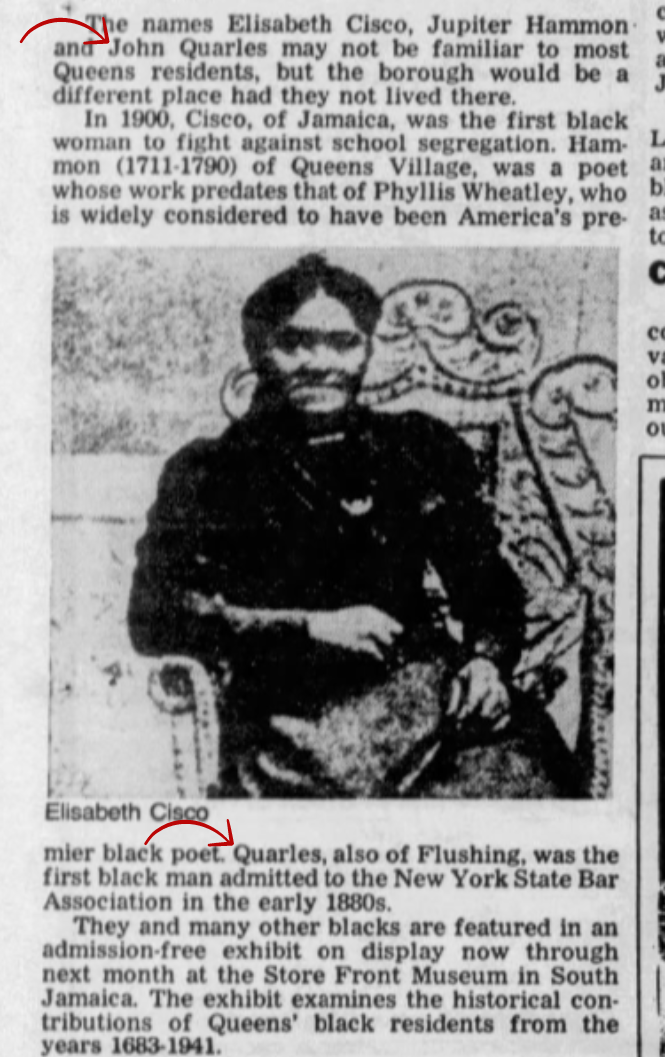
“In 1880, Algernon Sydney Sullivan sponsored former slave John H. Quarles as the first black member of the New York Bar. Racism was prevalent in this period, in the North as well as the South. Algernon Sydney’s forthright statement of support demonstrated not only his personal lack of bias but also his opposition to injustice of any sort.”
John H. Quarles, a black attorney in New York around the 1880s, is a notable figure for several reasons, particularly in the context of American legal history and racial integration in the legal profession. During this period, the United States was still grappling with the aftermath of the Civil War and the Reconstruction era, and the professional landscape was heavily segregated.
Quarles’, who attended law school at Howard University School of Law in Washington, DC, admission to the New York Bar was significant. Algernon Sydney Sullivan, known for his philanthropy and progressive views, was a respected lawyer and also a co-founder of the New York Southern Society. His support for Quarles was a profound gesture for the time, reflecting his commitment to equality and justice, values that Sullivan is widely remembered for.
Sullivan’s sponsorship would have been considered a personal endorsement, and also a challenge to the prevailing racial norms of the time within the legal profession and society at large. It’s important to note that during the late 19th century, opportunities for African Americans to enter into professions like law were extremely limited due to systemic racism and segregation. Two notable African American worth noting joined the legal profession in the United States in the mid to late 1880s. Macon Bolling Allen became the first African American licensed to practice law in 1844, and Charlotte E. Ray became the first female African American lawyer in the U.S. in 1872. Bolling practiced in Maine and Ray in the District of Columbia.
Unfortunately, detailed records about John H. Quarles’ legal career and achievements are not widely available, however, his story serves as an important reminder of the barriers that existed (and, in some forms, continue to exist) for people of color in the legal profession and highlights the importance of allies and advocates like Algernon Sydney Sullivan in working towards a more inclusive and equitable society.
Back to all News items.

